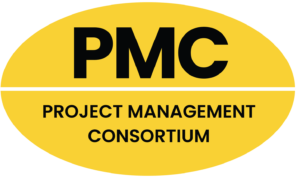Data mesh is here where from end users can easily access vital details without transporting them to a data warehouse. It’s easy to get information from there. This architecture of datasets has billions of data, which need proper management.
Organizations come up with incredible data management practices to make them usable. They want their trusted records to be managed in such a way that the analysis won’t take time and insights come up front quickly. It will lessen the time of extracting intelligence from the pool of datasets.
At present, several well-tested software, applications, and tools are around. They have upgraded techniques like DevOps and observing ability that make this practice more agile, future-proof, and easy to analyze.
Now that we have tools and technologies, it’s easy to believe that the global Big Data market is forecasted to generate $103 billion in revenue by 2027.
A proper management can make it achievable. Let’s get through the key characteristics of data management, which are key enablers.
Key Features of Data Management
For any professional management of data, we need an expert team whose control is in the hands of an experienced data product owner. Precisely saying, this team should have analysts, data science experts, user experience designers, solution architects, & researchers.
Together, they evolve innovative data products that can be a breakthrough. For achieving this goal, the pool of information (data resources) should be differentiated as these characteristics:
1. Discoverable Data
As aforesaid, your records should be effectively managed in such as way that they can be reused. For example, if you have invested in Zoho people, its data should be leveraged by different departments in your company. This can happen if you have a proper registry of all types of records relating to people of your company. Its metadata description can help you tap any user’s information in the blink of an eye.
There should be proper catalogs of your data. It will help in technically connecting databases and business metadata. With these advanced thinking, you can introduce metadata to all verified users. Simply put, you can integrate benchmark quality, security, and business intelligence tools to get into insights. Data catalogs can let you find any piece of information in no time.
2. Quality Management
Kissmetrics discovered that businesses lose as much as 20% of revenues because of low data quality. This is hard, but true. The unclean information is dangerous. Providing unfair decisions or intelligence via data sources can defame you, which takes years to heal that pain.
You may avoid this mishap. Data migration or collation from various sources can add errors, inconsistencies, formatting issues, and typos. So, always focus on the domain-driven decentralized data quality. It’s a key to deliver fair pieces of information to your customers.
For this, you need to have certified data professionals who have hands-on experience in it. They should be able to introduce innovative approach for filtering and fixing inconsistencies. This practice should be done before segmenting data as a product. Make it a priority to emphasize the context of data while managing, instead of integrating digitalization.
3. Secure Datasets
Autonomous or self-service analytics requires two-dimensional policing of data sources. Dynamic access and authorization regulate security of any records. It ensures only the right person to access and use secure information, while abiding by the privacy rules or compliance like HIPAA and GDPR.
These rules guard personally identifiable information, which is highly sensitive.
Advanced data security products control the access, and show different output from the same set of data to different users. Some specific sets of security policies govern users’ information and protect sensitivity while meeting confidentiality.
4. Observing Ability
A BPO works with data. There, professionals know that data decay quickly. It’s because of the changes in various sources of data collection. But still, they successfully maintain quality. To get clues on how it happens, closely monitor the BPO’s data entry solutions. They are carried out under a consistently observing system. Let’s say SaaS applications. They allow users to build their own data products, but without notifying about anomalies. It causes inconsistencies in schema, late and out-of-order arriving records or data entry errors.
Also, the entire lifecycle of the business intelligence may be broken. Some decisions or strategies may not be feasible because of erroneous data in its support. This may result in failure.
This is why investing in a data monitoring tool is worth. It can help in automatically and proactively discover errors & anomalies. In addition, root cause analysis, frequent monitoring, alerts or notifications, and recommendations to fix errors pop up in time. This is how you can avoid a big disaster due to erroneous datasets before happening.
5. Operations Skills
It’s challenging to find excellent data management skills. These are must-haves for building and deploying data to various systems. With good skills, you can increase the feasibility of strategic decisions.
Ensure that your data professionals are versed with DataOps. It ensures efficient & agile data engineering in no time. It has multiple advanced features like automation, low/no-code development, quick & continuous integration, testing, and deployment. Simply put, integrate DataOps tools for quickly developing data solutions.
The key characteristics are already discussed. These features are helpful in developing intelligence for AI and machine learning.
Typically, data architects work on data products and manage them effectively. Let’s find out what these data products are actually.
What are data products?
Data products are applications or tools that solve business problems. These products can be built or found internally or externally. Here are some categories as examples:
- A table or a published PDF that can have data models, like star schema or business-friendly semantic layers. For example, a dashboard of a company’s HR administration has employees’ datasets maintained in Excel files or tools, who may be from different departments.
- An online report, dashboard or an application with a unique user interface (UI), APIs, or command-line SQL access. You may create the one in Data Studio.
- A Machine Learning model that is integrated with the users’ workflow can help in determining their efficiency, project his sentiments, and more things.
Summary
There are five key characteristics of data management. They assist organizations in developing data products. Security, operations, observing abilities, quality, and discoverability appear in a key role in managing datasets effectively. It helps in improving decision-making through reliable and consistent datasets.



























